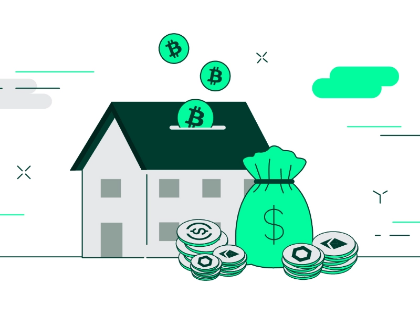Techniques for Handling Student Loan Repayments
Approximately 50% of college graduates incur some kind of student loan debt. Although managing your debt and making it more manageable can seem overwhelming, there are a number of ways that can assist. This covers loan consolidation as well as payment schedules and budgeting. In order to save money on interest and shorten the overall payback period, you can also prepay your principal.
1. Establish a spending plan.
 Student loan debt can be very taxing. But they are manageable with a little forethought and budgetary restraint. You can lower your total loan payment amount over time and accelerate your debt-free period by employing tactics including interest-only payments, refinancing, employing income-driven repayment plans, and paying more than the minimum monthly.
Making a budget is a wise place to start. If you have work-study earnings, include them in your list of expenses and revenue sources. Next, divide your income between all of your expenses, including loan payments.
Don't forget to include funds for an emergency fund. This will stop you from turning to your loans as a crutch when things get hard. Finally, to make sure you always make your loan payments on schedule, think about setting up automated payments with your lender. Additionally, this can lower your interest rate by 0.25%.
Student loan debt can be very taxing. But they are manageable with a little forethought and budgetary restraint. You can lower your total loan payment amount over time and accelerate your debt-free period by employing tactics including interest-only payments, refinancing, employing income-driven repayment plans, and paying more than the minimum monthly.
Making a budget is a wise place to start. If you have work-study earnings, include them in your list of expenses and revenue sources. Next, divide your income between all of your expenses, including loan payments.
Don't forget to include funds for an emergency fund. This will stop you from turning to your loans as a crutch when things get hard. Finally, to make sure you always make your loan payments on schedule, think about setting up automated payments with your lender. Additionally, this can lower your interest rate by 0.25%.
2. Pay every two weeks.
 It's critical to have a plan in place for paying off student debts, particularly when you're initially starting out. Simple strategies to help you get ahead of your debt include making biweekly payments and creating a budget.
By setting up a biweekly payment plan, you can make half-payments every two weeks, which adds up to 26 total payments annually as opposed to just 12 if you paid monthly. This shortens the length of time you have to pay back your loan and eventually lowers your interest costs.
Consider spending any windfall you receive—such as an inheritance, lottery winnings, work bonus, tax refund, or even a cash birthday gift—to pay off your student loans in full rather than just the minimum amount due. By contributing that extra money to your loans, you can reduce the amount owed and save money on interest and loan payback periods. Additionally, don't forget to inquire about any debt aid programs your business may be offering.
It's critical to have a plan in place for paying off student debts, particularly when you're initially starting out. Simple strategies to help you get ahead of your debt include making biweekly payments and creating a budget.
By setting up a biweekly payment plan, you can make half-payments every two weeks, which adds up to 26 total payments annually as opposed to just 12 if you paid monthly. This shortens the length of time you have to pay back your loan and eventually lowers your interest costs.
Consider spending any windfall you receive—such as an inheritance, lottery winnings, work bonus, tax refund, or even a cash birthday gift—to pay off your student loans in full rather than just the minimum amount due. By contributing that extra money to your loans, you can reduce the amount owed and save money on interest and loan payback periods. Additionally, don't forget to inquire about any debt aid programs your business may be offering.
3. Make additional loan payments.
 Over time, making larger monthly payments than the minimum can significantly lower your student loan burden. But you should carefully examine your spending plan to ensure that you can afford to establish an emergency fund and save for retirement and that making additional loan payments won't negatively impact other fixed expenses like rent or utilities.
You may want to think about applying the debt avalanche approach, which applies your payments to the loans with the highest interest rates first, if you have several loans with different interest rates. As an alternative, you could decide to use your increase or tax refund to pay off your student loans.
You could also look into loan forgiveness, deferral, and alternate repayment schedules. In the event that you choose to make extra loan payments, make sure the memo line of your payment states "apply to principal" to prevent your lender from applying the extra money to your following month's bill automatically. Don't forget to ask your servicer about any exclusive offers or programs, including debt consolidation, that are available to borrowers of student loans.
Over time, making larger monthly payments than the minimum can significantly lower your student loan burden. But you should carefully examine your spending plan to ensure that you can afford to establish an emergency fund and save for retirement and that making additional loan payments won't negatively impact other fixed expenses like rent or utilities.
You may want to think about applying the debt avalanche approach, which applies your payments to the loans with the highest interest rates first, if you have several loans with different interest rates. As an alternative, you could decide to use your increase or tax refund to pay off your student loans.
You could also look into loan forgiveness, deferral, and alternate repayment schedules. In the event that you choose to make extra loan payments, make sure the memo line of your payment states "apply to principal" to prevent your lender from applying the extra money to your following month's bill automatically. Don't forget to ask your servicer about any exclusive offers or programs, including debt consolidation, that are available to borrowers of student loans.
4. Apply any additional at month's end.
 Although it has a price, a college degree is a fantastic way to start new prospects. That expense comes in the form of a hefty student loan debt load for many graduates. Borrowers can, however, use a number of tactics to lower their payments or perhaps pay off their debts entirely.
To begin with, figure out exactly how much you owe. This will enable you to prioritize paying off your debt and make a budget. Additionally, you want to invest some time in learning about various loan forgiveness and income-driven repayment options.
For instance, compared to other IDR plans, the Savings on a Valuable Education (SAVE) Plan offers lower monthly payments to borrowers with low and intermediate incomes. Over the course of your loans, you will still pay extra interest as a result of them.
Although it has a price, a college degree is a fantastic way to start new prospects. That expense comes in the form of a hefty student loan debt load for many graduates. Borrowers can, however, use a number of tactics to lower their payments or perhaps pay off their debts entirely.
To begin with, figure out exactly how much you owe. This will enable you to prioritize paying off your debt and make a budget. Additionally, you want to invest some time in learning about various loan forgiveness and income-driven repayment options.
For instance, compared to other IDR plans, the Savings on a Valuable Education (SAVE) Plan offers lower monthly payments to borrowers with low and intermediate incomes. Over the course of your loans, you will still pay extra interest as a result of them.










